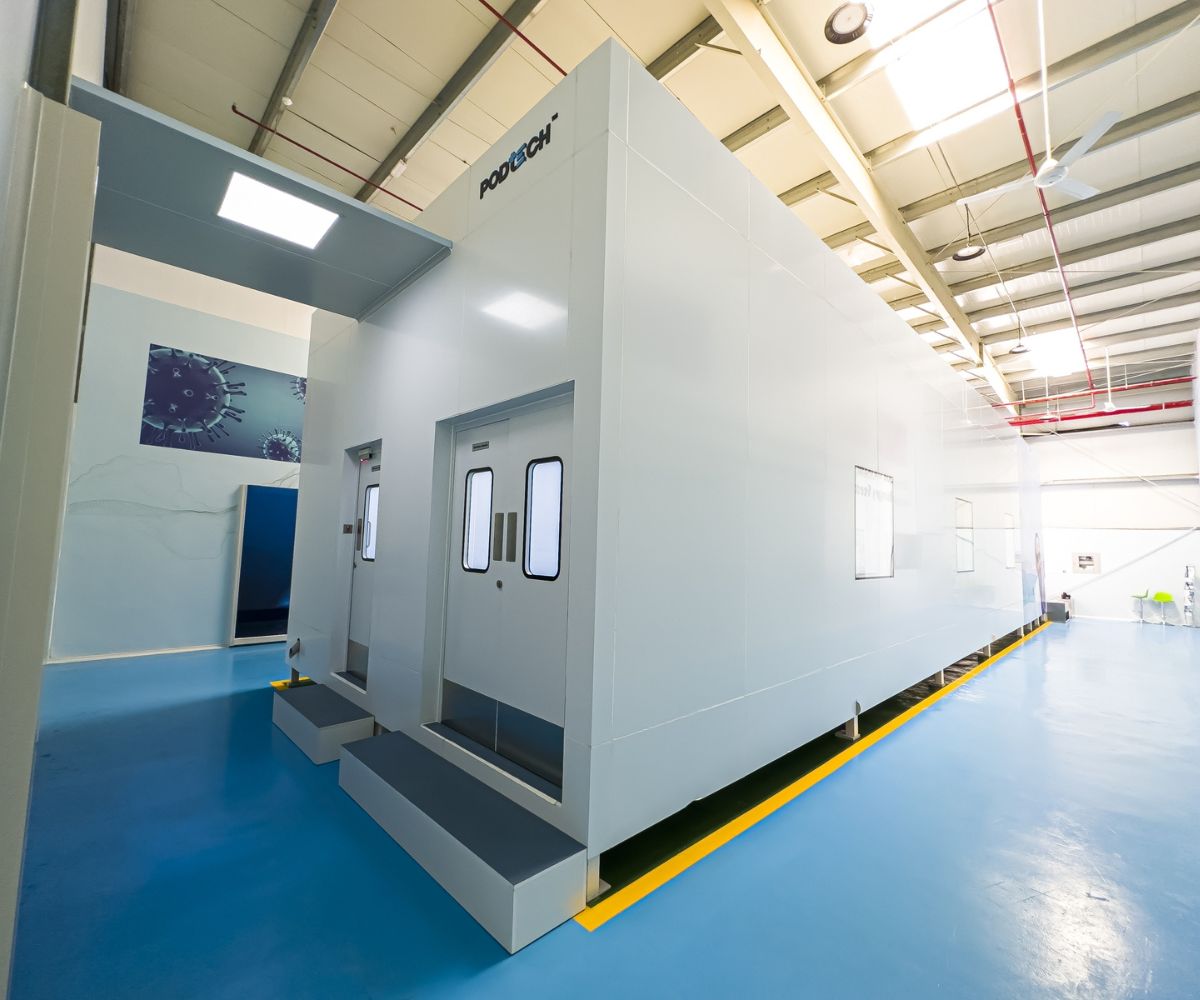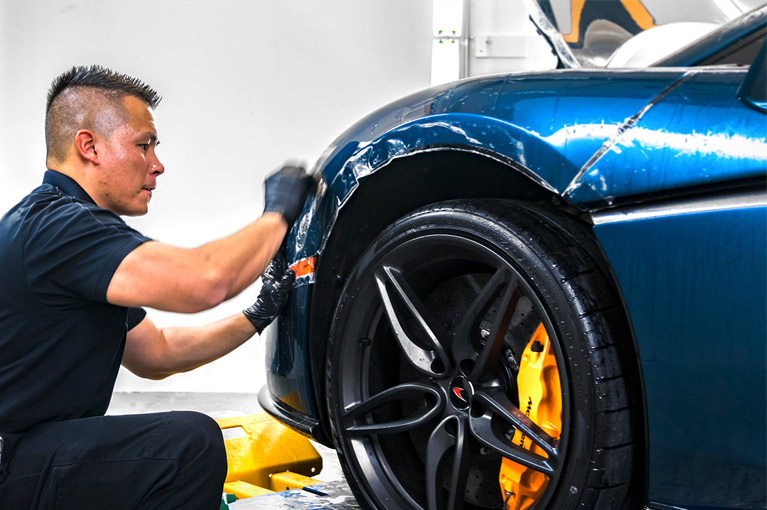
In the rapidly evolving fields of biotechnology, pharmaceuticals, and electronics, maintaining a controlled, contamination-free environment is crucial. Traditionally, such environments, known as cleanrooms, are permanent fixtures within laboratories and manufacturing facilities. However, recent advancements have given rise to a new and innovative solution: mobile cleanrooms. These portable, adaptable, and highly efficient cleanrooms are transforming how industries approach contamination control, offering flexibility and scalability that traditional cleanrooms cannot match.
What Are Mobile Cleanrooms?
Mobile cleanrooms are self-contained, transportable units designed to provide controlled environments on demand. They are engineered to meet specific cleanliness standards, typically conforming to ISO classifications, which dictate the allowable particle count per cubic meter of air. These units can range from small, modular pods to large, truck-sized containers, each tailored to the requirements of the task at hand.
Advantages of Mobile Cleanrooms
Flexibility and Mobility
The primary advantage of mobile cleanrooms is their mobility. They can be transported to various locations as needed, making them ideal for industries that require temporary cleanroom facilities or need to conduct operations in multiple sites. This is particularly beneficial for fieldwork in remote or undeveloped areas where building a permanent cleanroom is impractical or cost-prohibitive.
Cost-Effectiveness
Constructing a permanent cleanroom can be an expensive and time-consuming process. Mobile cleanrooms, on the other hand, can be rented or purchased and deployed quickly, reducing the upfront capital expenditure and allowing companies to allocate resources more efficiently. This cost-effectiveness makes mobile cleanrooms an attractive option for startups and smaller enterprises that need high-quality clean environments but lack the budget for permanent structures.
Scalability
As projects expand, the need for additional cleanroom space can increase. Mobile cleanrooms offer scalable solutions that can grow with the project. Additional units can be brought in as needed, providing a flexible approach to managing changing requirements without significant delays or disruptions.
Rapid Deployment
In situations where time is of the essence, such as during an epidemic or emergency manufacturing of critical components, the ability to rapidly deploy a cleanroom can be a game-changer. Mobile cleanrooms can be operational within days, providing a controlled environment much faster than traditional construction methods.
Versatility
These units can be customized to meet the specific needs of different industries. Whether it’s for pharmaceutical compounding, biotechnological research, or semiconductor manufacturing, mobile cleanrooms can be equipped with the necessary equipment and filtration systems to maintain the required standards of cleanliness and control.
Applications Across Industries
Pharmaceuticals and Biotechnology
Mobile cleanrooms are increasingly used in the pharmaceutical industry for drug formulation, testing, and production. They are particularly useful for clinical trials conducted at multiple sites, allowing for consistent environmental conditions. Biotech companies leverage mobile cleanrooms for research and development, especially when experimenting with sensitive biological materials that require strict contamination control.
Electronics and Semiconductors
The production of microelectronics and semiconductors demands extremely clean environments to prevent defects and ensure high yields. Mobile cleanrooms offer a versatile solution for companies that need to set up temporary production lines or conduct repairs and modifications on existing equipment in various locations.
Healthcare
Hospitals and medical facilities use mobile cleanrooms for sterile compounding of medications and for setting up temporary operating rooms in emergencies or during renovations. They ensure that high standards of hygiene and sterility are maintained, which is critical in preventing infections and ensuring patient safety.
Aerospace and Defense
The aerospace and defence sectors require cleanrooms for assembling and testing sensitive components like satellite instruments and defence systems. Mobile cleanrooms allow these activities to be conducted at launch sites or in-field operations, providing the necessarily controlled environments without the need for permanent installations.
Food and Beverage
In the food and beverage industry, mobile cleanrooms can be used for food processing, packaging, and quality control. This ensures that products meet health and safety standards, preventing contamination and ensuring consumer safety.
Challenges and Considerations
While mobile cleanrooms offer numerous advantages, some challenges and considerations need to be addressed. Ensuring that these units meet the required cleanliness standards involves rigorous testing and validation. Regular maintenance and calibration of filtration systems are essential to maintain their effectiveness.
Another challenge is the integration of mobile cleanrooms into existing workflows. Companies must ensure that the deployment of these units does not disrupt ongoing operations. Careful planning and coordination are necessary to maximize the benefits of mobile cleanrooms.
Future Outlook
The future of mobile cleanrooms looks promising, with advancements in technology and increasing demand driving innovation. Improvements in materials and design are making these units more efficient, durable, and user-friendly. The integration of smart technologies, such as real-time monitoring and automated control systems, is enhancing the capabilities of mobile cleanrooms, making them even more reliable and easy to manage.
As industries continue to prioritize flexibility and rapid response capabilities, the adoption of mobile cleanrooms is expected to grow. They represent a significant step forward in contamination control, providing a practical and scalable solution to meet the evolving needs of various sectors.
Conclusion
In conclusion, mobile cleanrooms are revolutionizing the concept of controlled environments. Their flexibility, cost-effectiveness, and rapid deployment capabilities make them an invaluable asset across multiple industries. As technology continues to advance, mobile cleanrooms are set to become an integral part of modern industrial practices, ensuring high standards of cleanliness and control wherever they are needed.








